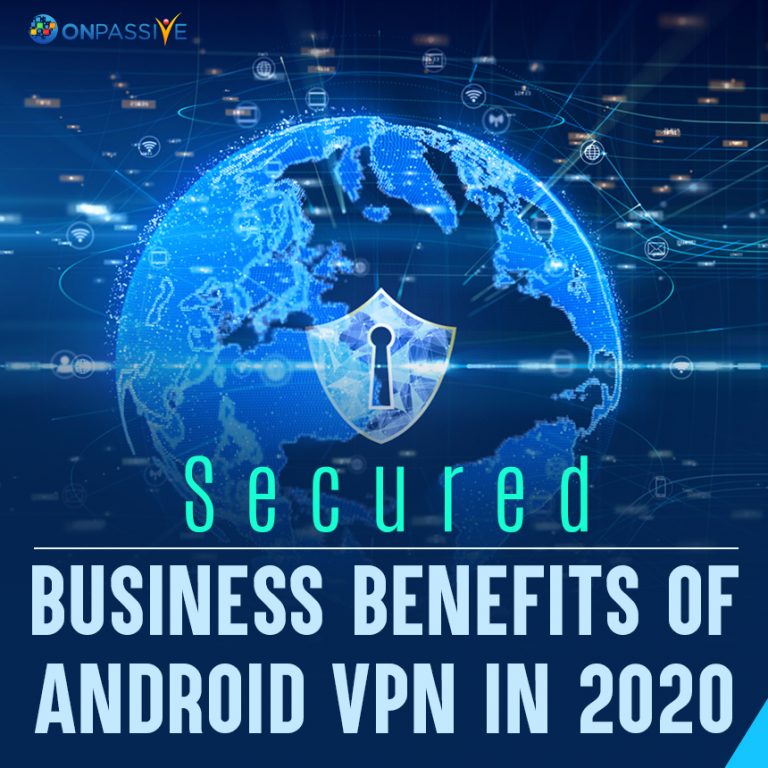
A secure connection established between your computer and a remote server is a virtual private network (VPN). All your traffic is encoded, so mediators can’t see what is being transmitted. Since you connect to the internet via a remote location, instead of your real IP address, every website you crawl through will see the IP address of that location, which keeps you anonymous online.
On PCs, Macs, routers, and Smart TVs, VPNs can be used, and on iOS devices, you can use an Android VPN on your Android device or an iPhone VPN. In this blog, we look at the practical advantages of having VPN services and what it means for a business.
Major Reasons Why you Should Use VPN
All web users, home users, startups, small and huge businesses benefit highly from using a virtual private network (VPN). The services offered by VPN connections minimize data theft incidents and secures internet communications.
Here are a few of the use cases of VPN for Businesses:
Secured Remote Workforce: Your employees emerge from various regional areas. It can pose a challenge to monitor their online activities and grant them secure access to your IT network.
Implement a BYOD Policy: Eighty-five percent of companies offer employees BYOD options. While these policies reduce the infrastructure costs of a company, they increase safety risks. Employees outside the workplace will connect their computers to unsecured networks, which reveal the information.
Your Staff Travel to Customer Locations: Your staff may travel to customer locations to close deals or carry out after-sales or consulting work. They’ll need connections to your private business network when on site. While traveling, they may also have to work, and to use public wifi at airports and hotels increases security risks.
Practical Benefits of Android VPN
#1 Secured Browsing Using Public wifi
The biggest reason for using an Android VPN on your Android device is that you often connect to the internet through public wifi when using a mobile device, which means you’re joining a pool of networked devices. Malicious actors will then snoop on the traffic you’re sending on the internet back and forth. Since you can use your Android smartphone for crucial things, such as banking and shopping, it is fair to use a virtual private network (VPN) to shield your surfing when out and about from prying eyes.
Between your phone and the websites you’re visiting, there are always intermediary servers that relay the data. Using a VPN means that none of them can see what you do or recognize who you are.
#2 Access Geo-restricted Content
Some content on streaming platforms such as Netflix is only available if you connect from certain countries to the service. You can get around this connection by using a VPN and connecting via a server in the relevant country.
For example, you can connect to an Android VPN server in the US if you use a VPN in Australia and watch streaming content available there. This is entirely legal, in case you’re wondering.
The same also refers to regional video platforms such as Hulu or the BBC iPlayer in the UK. Although these are only usable in a single country, you can digitally position yourself there using a VPN and access all the exclusive content.
#3 Bypass content Blocks and Firewalls
A VPN can be used to bypass firewall-blocking rules. A school, workplace, internet service provider, or a country’s website may be blocked, but you can turn on your virtual private network (VPN), and the firewall can’t tell that you’re accessing a restricted website at all.
Several internet service providers will also restrict or throttle the speeds of particular internet traffic types – possibly when someone is streaming, downloading something on torrent, or even gaming. A virtual private network (VPN) helps computers maintain a faster connection speed, no matter what purpose a user is on the internet.
# 5 Heightened Security
If your enterprise has no use of site-to-site tunneling or structured remote access provisioning, you will likely have two significant characteristics in common with larger companies. First, whether it’s data or business apps or both, you probably have resources in the cloud. And second, you probably have traveling or remote users. Without a significant investment in data center-grade routing hardware, if your business has either or (more likely) both of these features, then a virtual private network (VPN) service can keep you more secure.
By deploying a VPN service on your users’ devices, you essentially create a secure link to whatever resource they log on to.
Next steps: Set up Your VPN with us Right Away
If your business doesn’t have a virtual private network (VPN) yet, don’t take the risk of a data breach to happen. Sign up for ONPASSIVE virtual private network (VPN) software right now. Our VPN software solutions directory can help you to shortlist vendors.
Once you set up your VPN, you can allow your staff to do all business work over the internet through the VPN. It won’t help protect their online operations if the workers leave the VPN turned off most of the time.
Check out VPN tools that provide quicker browsing and support advanced encryption features like SSL and L2TP if you already have VPN apps and are looking for an update.



Cyndee Hopkins
4 years ago
Abdullah Abbadi
4 years ago
STEMLER JÁNOS
4 years ago
Manuel Reyes
4 years ago
Nick Hudson
3 years ago